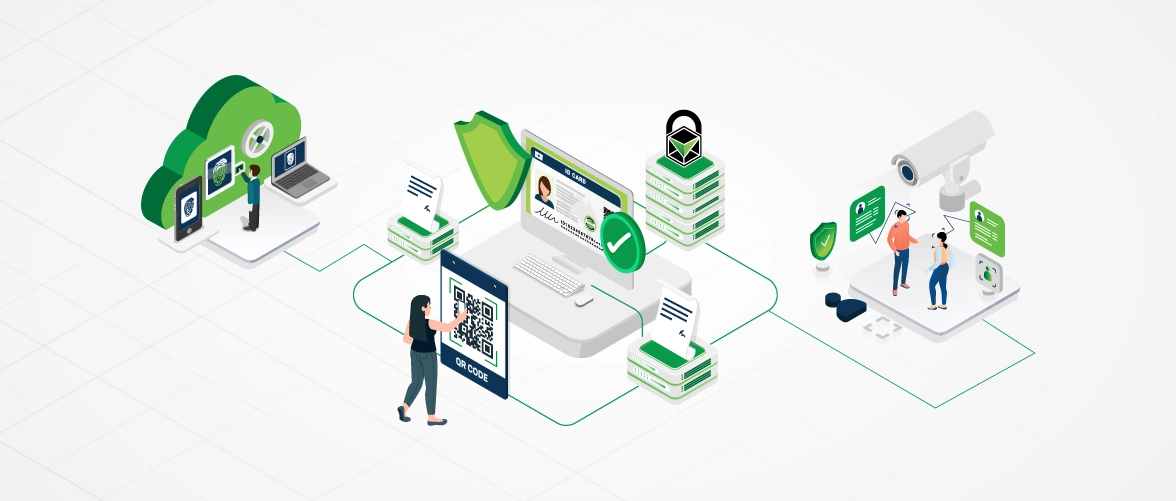Trends In The Future of Identity Verification
26 Apr 2024

The world is becoming increasingly digital, and with that comes a growing need for secure and reliable methods of identity verification. From financial transactions to healthcare records, identity verification is essential for ensuring security, privacy, and accuracy. But with new technologies emerging every day, what does the future of identity verification look like?
Trends in Identity Verification In The Growing World
In this blog post, we'll explore the upcoming trends in identity verification and what they mean for businesses and individuals.
Biometric Identification
Biometric identification is one of the most promising trends in identity verification. Unlike traditional methods that rely on passwords and usernames, biometric identification uses unique physical characteristics such as fingerprints, facial recognition, and voice patterns to authenticate a user's identity. Biometric identification offers several advantages over traditional methods, including increased security, ease of use, and reduced risk of fraud. However, it also has its limitations, such as accuracy and privacy concerns.
Artificial Intelligence and Machine Learning
Artificial intelligence and machine learning are revolutionising the way we approach identity verification. By using algorithms to analyse patterns and behaviours, AI and machine learning can quickly and accurately verify an individual's identity. This approach offers several benefits, such as improved efficiency, reduced errors, and increased security. However, it also presents some challenges, such as the potential for bias and the need for large amounts of data.
Blockchain Technology
Blockchain technology is already transforming various industries, and identity verification is no exception. By creating a decentralised and immutable ledger, blockchain technology can provide a more secure and transparent approach to identity verification. This method offers several advantages, such as increased security, improved privacy, and reduced costs. However, it also has its limitations, such as scalability and adoption challenges. VeriDoc ID is one such solution that has integrated blockchain technology into their identity cards. This makes the identification systems more secure and safe.
Future Applications of Identity Verification
The future of identity verification extends beyond traditional use cases such as finance and healthcare. As technology continues to advance, we can expect to see identity verification used in various sectors, such as travel, voting, and social media. These applications offer several benefits, such as increased security, improved privacy, and reduced fraud. However, they also present some challenges, such as legal and ethical considerations.
Final Thought
Identity verification is a critical component of our digital world, and as technology continues to advance, we can expect to see new and innovative approaches to identity verification. The trends outlined in this blog post offer several benefits and challenges for businesses and individuals alike. To stay ahead of the curve, it's essential to keep an eye on these trends and explore how they can be applied to your specific needs. By doing so, you can ensure that your identity verification practices are secure, reliable, and future-proof.